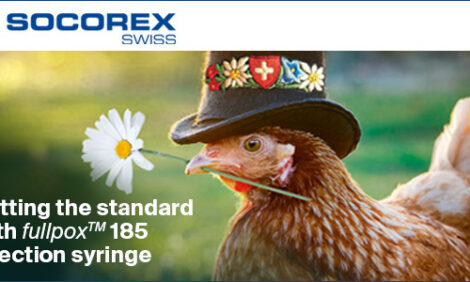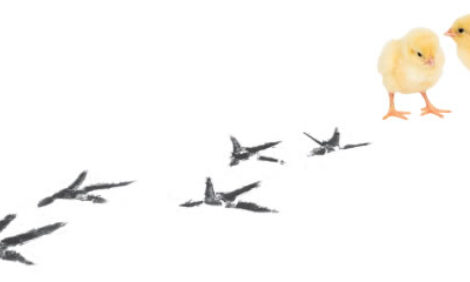



Biosecurity Basics: Protect Your Birds
Advice for smallholders and hobby farmers on keeping their birds healthy from USDA Animal and Plant Health Inspection Service (APHIS).Protecting your birds is the best defence against avian influenza (AI) and exotic Newcastle diseases (END). The following preventative measures can help your birds stay healthy if practiced regularly.
Keep It CLEAN
If you practice these steps and make them part of your bird care routine, you will be doing a lot to help the health of your flock. These are a few important things to remember:
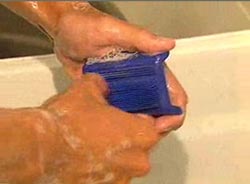
below: Scrub shoes with disinfectant
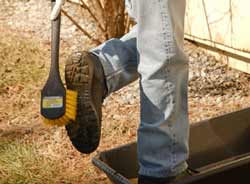
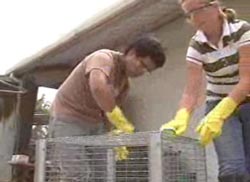
below: Clean equipment before disinfecting
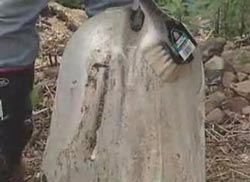
- Wash your hands thoroughly before entering your bird area and before and after working with your birds.
- Scrub your shoes with disinfectant. This may seem like too much work, but your boots and shoes can easily track disease to your birds. Or keep a separate pair of shoes or boots near your cages to wear only when working with your birds. Wear clean clothes that you use only when you feed and care for your birds.
- Clean cages and change food and water daily.
- Clean and disinfect equipment that comes in contact with your birds or their droppings, including cages and tools.
- Make sure to clean off all dirt, manure, litter and debris with soap and water before you disinfect.
- Wood surfaces cannot be disinfected as well as other surfaces unless they are covered with polyurethane.
- Keep clutter out of poultry areas so that they are easy to clean.
- If you do borrow tools or cages, clean and disinfect them before they reach your property.
Keep it AWAY
Restrict access to your property and your birds. Wild birds or new birds you’ve just purchased could carry diseases that could spread quickly to your flock. Here are some things you can do to keep disease away from your birds:
- If visitors have birds of their own, do not let them near your birds.
- Avoid visiting farms or other households with poultry.
- If you have been near other birds or bird owners, such as at a feed store, pet store or bird club meeting, clean and disinfect your clothing, shoes, cages and equipment before going near your birds.
Have your birds been to a fair or exhibition? If so, keep them separate from the rest of your flock for at least two weeks after the event. If you have bought new birds, they should be kept separate for at least 30 days. Buy birds from a reputable source so you know you are getting healthy animals.
Do not share lawn and garden equipment, tools, or poultry supplies with your neighbors or other bird owners, but if you must, disinfect them before bringing them home.
Consider fencing off the area where you keep your birds and make a barrier area if possible. Allow only people who take care of your birds to come into contact with them.
Wild birds should not have contact with your flock because they may carry germs and diseases.
Properly dispose of dead birds. Bird deaths are a fact of life. But if one of your birds dies, call the county extension agent, State department of agriculture, or your veterinarian for guidance.
Precautions For Cage-Free Poultry
It is recommended that poultry producers who raise birds in outdoor, non-confinement systems should try to prevent contact with wild birds and wild bird droppings. Protective measures include:
- Identifying high risk areas that include wetlands along migratory flyways or other areas where wild waterfowl or shorebirds congregate, and high-density poultry production areas.
- Implementing preventive measures for these high-risk areas:
- Keeping birds indoors or
- Restricting outside open access by maintaining outdoor enclosures covered with solid roofs and wire mesh or netted sides.
- Keeping outdoor enclosures covered with wire mesh or netting in lower risk areas (solid roofing not required).
- Providing feed and water for all non-confinement-raised poultry in an indoor area. Birds should not be allowed access to surface water that could potentially transmit AI or other avian pathogens through contamination with wild bird excrement.
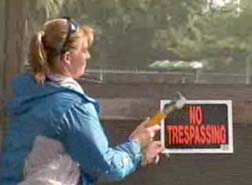 |
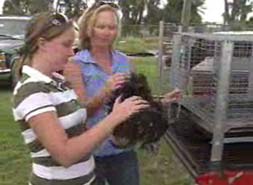 |
right: Clean and disinfect all clothes and equipment if you have been near other birds
Further Reading
| - | Find out more information on the diseases mentioned in this article by clicking here. |
June 2010







